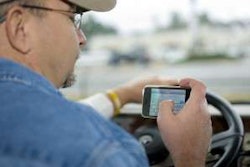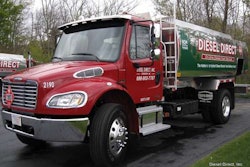
Drivers will face 60-day CMV disqualification after two violations within a three-year period. Three violations in a three-year period will result in a 120-day disqualification.
The final rule follows the FMCSA’s proposed rulemaking on April 1, and the agency since has received and reviewed more than 400 public comments. In response to some of the comments raised by the American Trucking Associations and others regarding the exclusion of in-cab fleet management systems, FMCSA revised the blanket exception to the ban to prohibit texting on a dispatching device or a device that is part of a fleet management system. It does not prohibit the use of the other functions of such devices for purposes other than texting, as defined in the final rule. According to the FMCSA, “Texting on a dispatching device is indistinguishable from texting on another text-capable device and is, therefore, prohibited in this final rule.”
In the final rule, FMCSA defines texting as “manually entering alphanumeric text into, or reading text from, an electronic device,” and says such actions include short message service, email, instant messaging, a command or request to access the Internet, or any other form of electronic text retrieval or entry.
The ban does not include “reading, selecting or entering a phone number, an extension number or voicemail retrieval codes and commands into an electronic device for the purposes of initiating or receiving a phone call or using voice commands to initiate or receive a telephone call.” It also does not cover inputting, selecting or reading information on a global positioning system or navigation system and non-texting uses of these devices.
Because 20 states have yet to issue bans on texting while driving, the final rule is applicable to all CMV drivers engaged in interstate commerce regardless of the existence of a state law or regulation.
In its research, the FMCSA cites from the CTIA- The Wireless Association, which states the number of text messages increased from 32.6 billion in the first half of 2005 to 740 billion in the first half of 2009, a 2,200 percent increase in four years. “FMCSA maintains that texting by CMV drivers while operating on public roads has the potential of becoming a widespread safety problem in the absence of an explicit Federal prohibition, “ says the agency. “FMCSA prohibits this inherently unsafe practice to reduce the risks of crashes, injuries and fatalities.”











